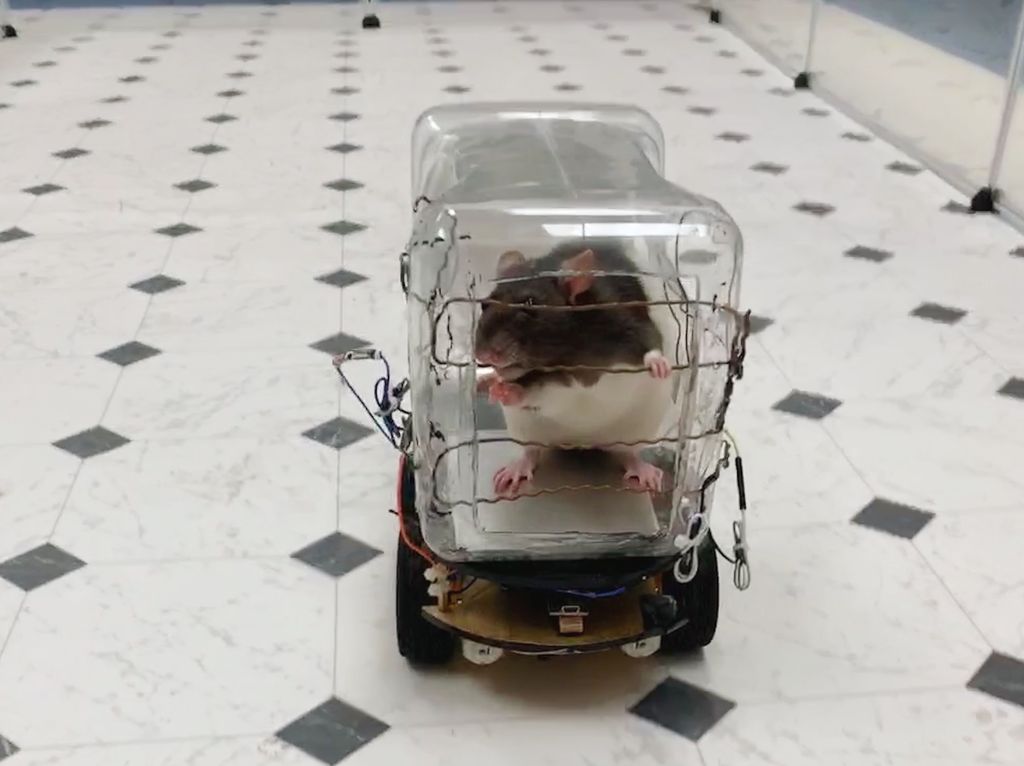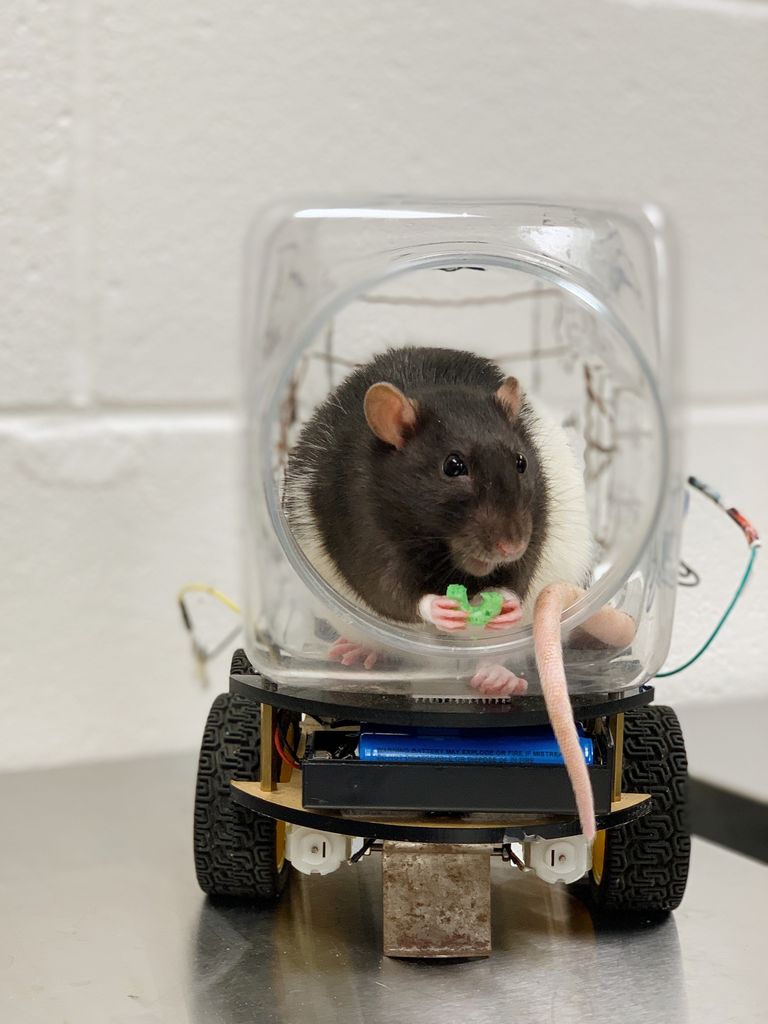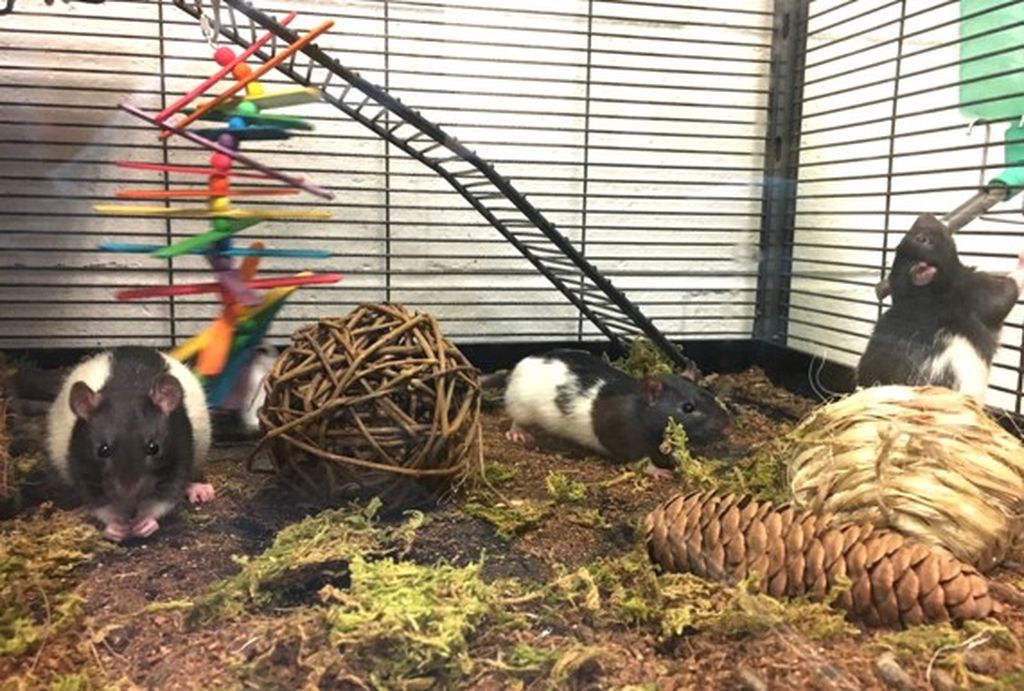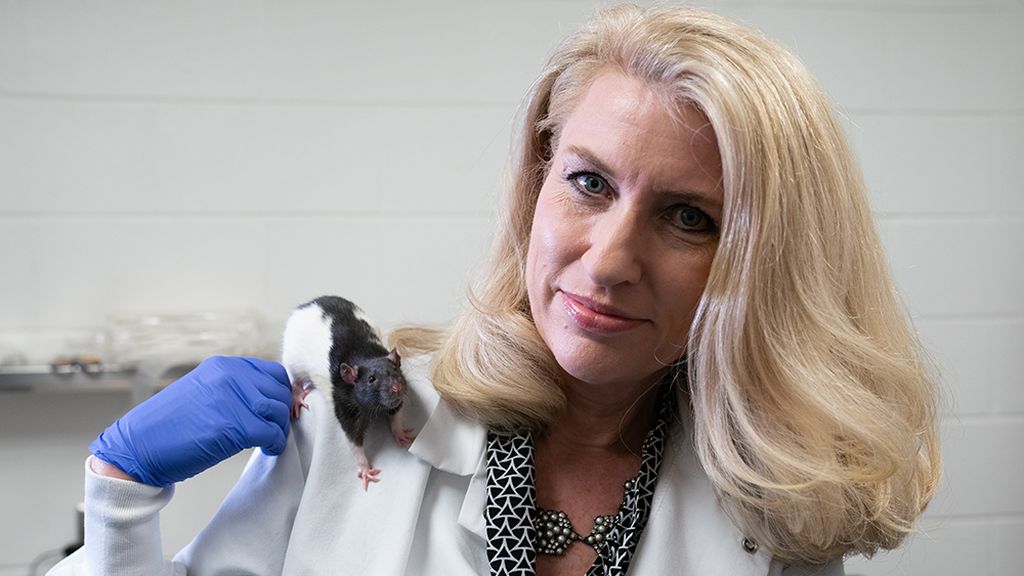Richmond, Virginia —(Map)
What’s a good way to lower your stress level? Well, if you’re a rat, one possible method is to drive around in a little car in hopes of getting pieces of sweet breakfast cereal.
That may sound like a joke, but it’s not. Scientists at the University of Richmond have actually trained rats to drive tiny cars. But the point of their study wasn’t just to see if rats could drive. The scientists wanted to know if the way rats grew up made a difference in how good they were at learning a complicated skill like driving.

(Source: University of Richmond.)
The scientists created tiny plastic electric cars and slowly taught 17 rats how to drive them. The cars had several copper wires in the front. Depending on which wires the rats touched, the car would go left, right, or straight ahead. The cars stopped when the rats took their paws off the wires.
To encourage the rats to drive, the scientists offered them Froot Loops – a sweet, fruity breakfast cereal. The rats soon learned to drive the cars without any help to reach their goal – a reward station that offered them the cereal.

(Source: University of Richmond.)
Figuring out how to drive the car was complicated. The scientists wanted to find out if the way the rats had been raised affected their ability to learn this difficult task. The scientists worked with two different groups of rats. One of the groups had grown up in plain cages in a laboratory.
The other group of rats had grown up in a “rich environment” that was meant to be more like a rat’s natural environment. These cages had lots of toys and small ladders and contained many natural materials.

(Source: University of Richmond.)
The scientists learned that the animals who had grown up in the more natural setting were far better at learning the skills needed to drive. They also remained interested in driving, even when they weren’t being paid in Froot Loops.
The rats that grew up in plain laboratory cages weren’t as good. Kelly Lambert, the lead scientist, said that some of the rats “failed their driving test.”

(Source: University of Richmond.)
After the rats drove, the researchers studied their poop. They found higher levels of a chemical that reduces stress. This showed that the activity was relaxing for the rats. The scientists believe this may be because the rats felt more satisfied after learning to do something difficult and gaining more control over their environment.
The scientists think that their results could be useful in finding new ways to help people who are struggling with mental health problems.
Below is a video of a rat driving in a fairly straight, simple test. At other times the rats had to make more choices, drive farther, and turn more.
(Source: University of Richmond.)
😕
This map has not been loaded because of your cookie choices. To view the content, you can accept 'Non-necessary' cookies.
